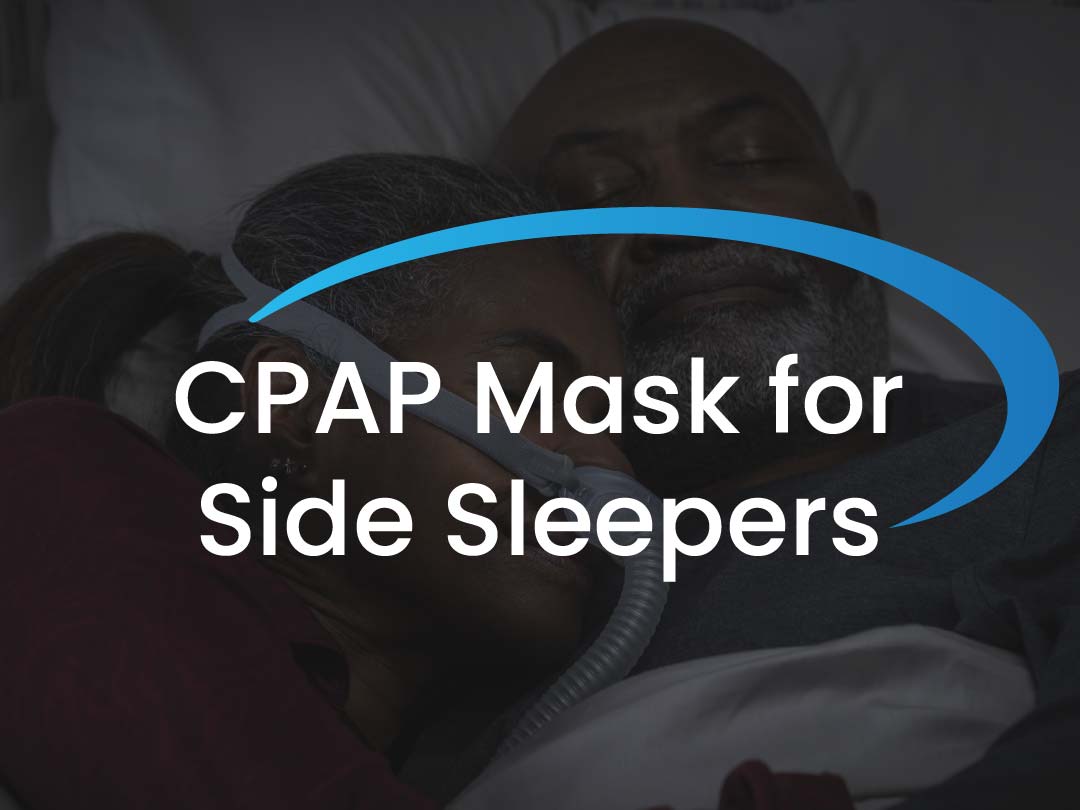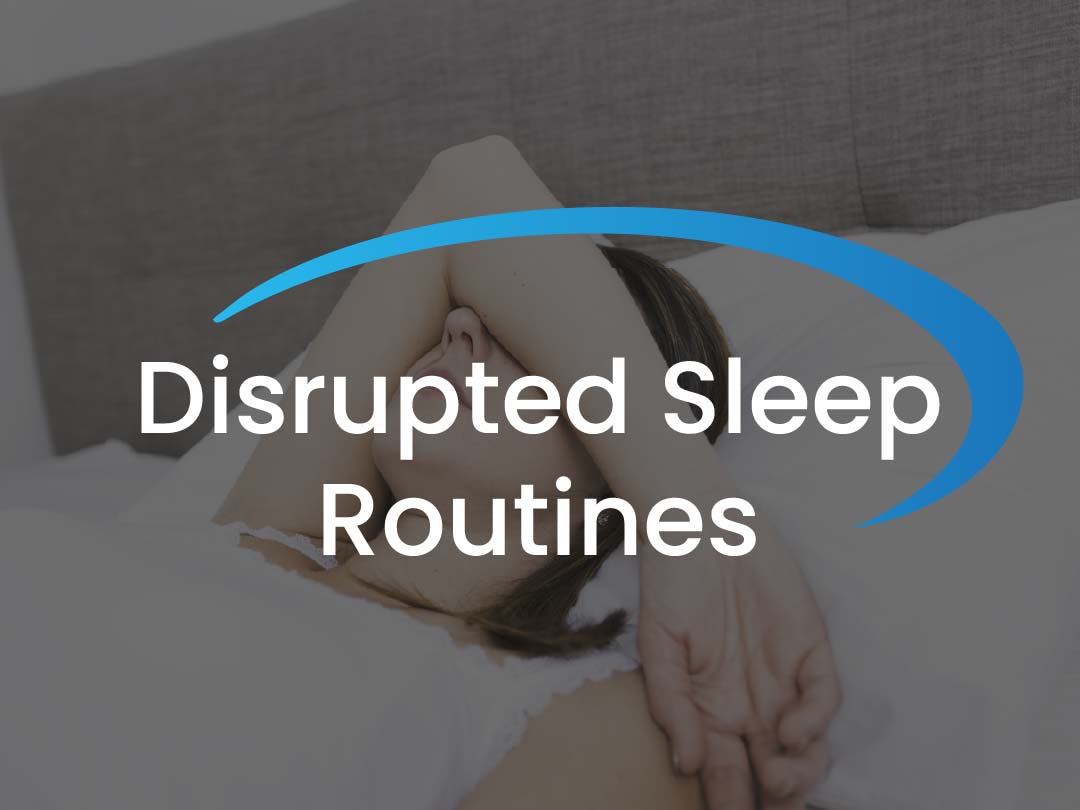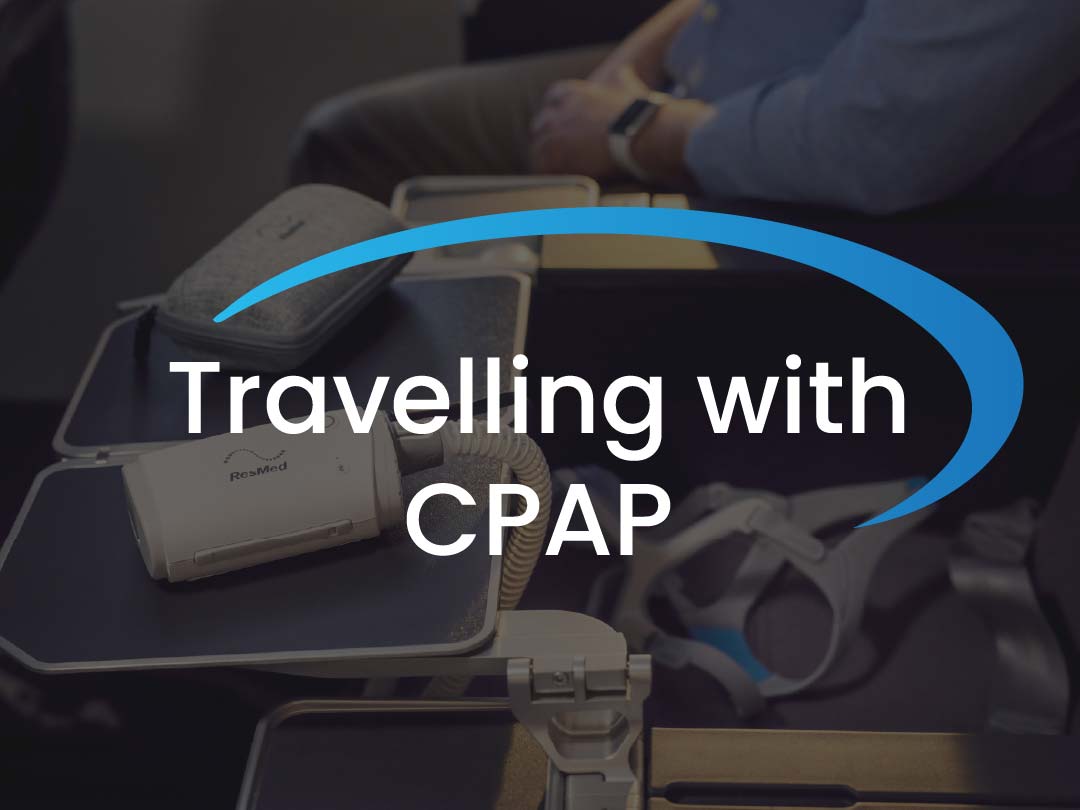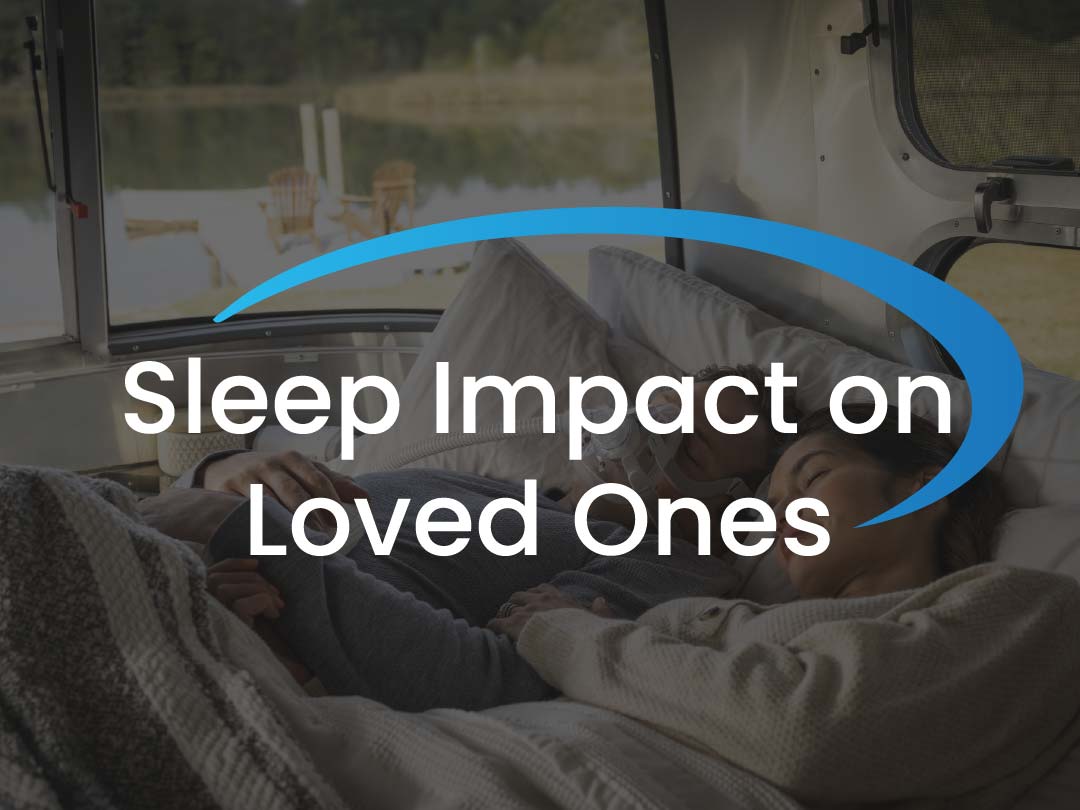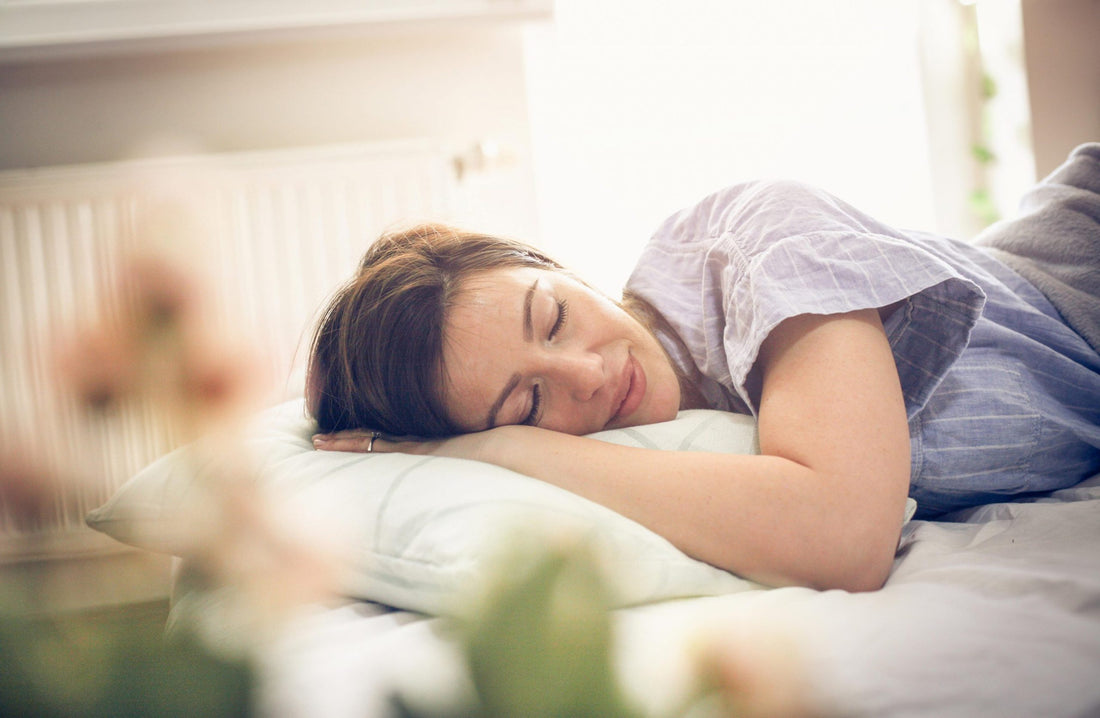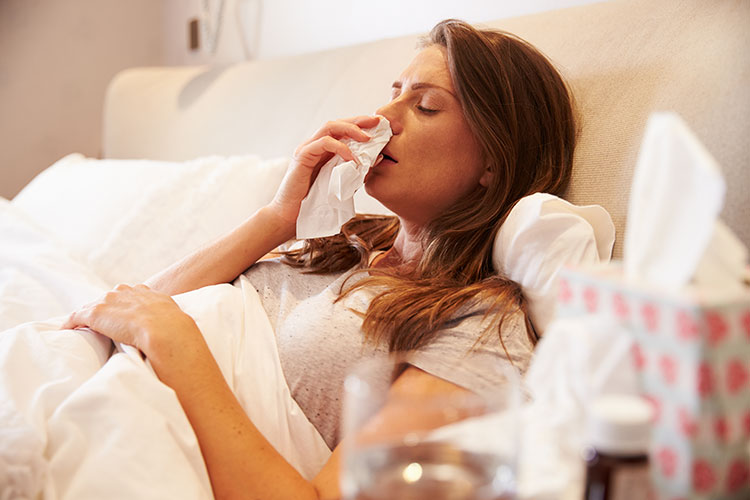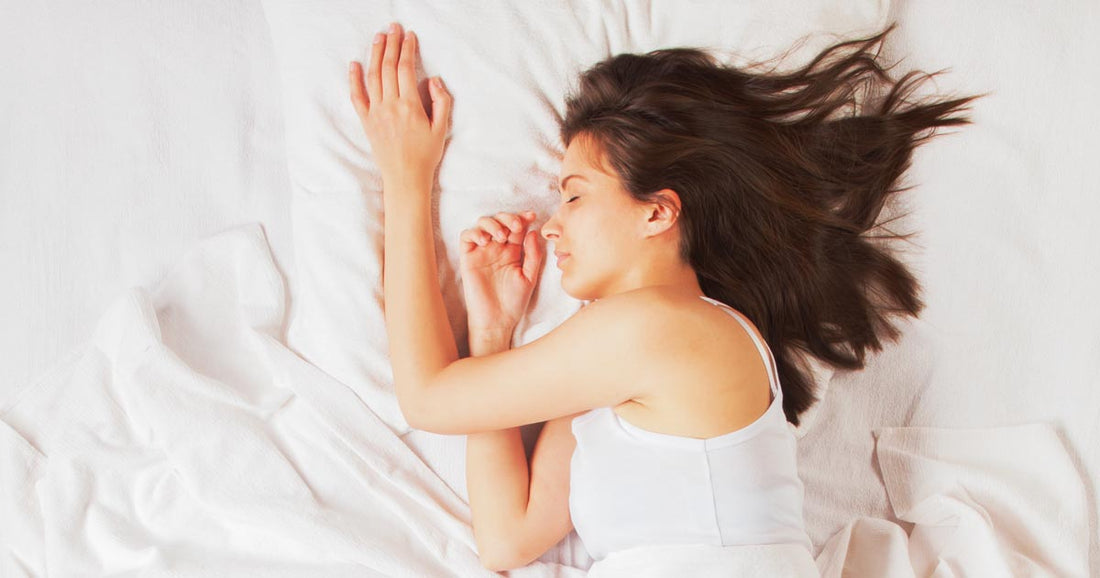News
The Best CPAP Mask for Side Sleepers
Side sleepers face unique challenges when using CPAP therapy, particularly with mask stability and air leakage. This guide highlights two top-rated CPAP masks specifically designed for side sleepers: the ResMed AirFit P10 with its lightweight nasal pillow design and QuietAir technology, and the Philips Respironics DreamWear featuring an innovative under-the-nose design. Both masks prioritize comfort and maintain effective seals, ensuring uninterrupted therapy for side sleepers seeking quality rest.
about The Best CPAP Mask for Side SleepersHas your sleep routine neen disrupted?
Life has a way of disrupting even the most consistent sleep routines. Whether it's a late event, major life change, or travel throwing off your schedule, getting back on track doesn't have to be overwhelming. This guide covers five practical strategies to restore your sleep cycle: from relaxation techniques and temporary sleep aids to optimizing your bedroom environment and avoiding common pitfalls like afternoon naps and pre-bedtime caffeine.
about Has your sleep routine neen disrupted?Travelling with a CPAP Machine
Planning summer travel with your CPAP machine doesn't have to be stressful with proper preparation. This essential guide covers five key strategies: checking your equipment for wear and tear before departure, creating a comprehensive packing checklist, always keeping your CPAP in carry-on luggage, considering a travel-sized machine for frequent travelers, and maintaining your therapy routine while away. Proper planning ensures you'll sleep well and enjoy your vacation to the fullest.
about Travelling with a CPAP MachineGet your CPAP Ready for Summer
Hot summer weather can negatively impact sleep apnea and CPAP therapy effectiveness, making seasonal adjustments essential for quality rest. This guide covers four crucial summer preparation steps: lowering humidifier settings to prevent condensation buildup, maintaining cool bedroom temperatures with air conditioning, inspecting and replacing worn CPAP parts before peak season, and keeping windows closed to avoid pollen and allergens that can worsen sleep apnea symptoms.
about Get your CPAP Ready for SummerSleep Deprivation is Affecting your Love Life
Poor sleep doesn't just affect your health, it can seriously damage your relationships too. Sleep deprivation makes you less attractive to potential partners, reduces your ability to navigate dating successfully, increases irritability and conflicts with your spouse, decreases sexual desire, and disrupts your partner's sleep through restless movements. Understanding these connection points between sleep quality and relationship health can motivate you to prioritize better rest for both you and your loved ones.
about Sleep Deprivation is Affecting your Love LifeSleep Hygiene Tips for Warm Weather
wp:paragraph The warmer weather has officially arrived in many places! As much as you may be enjoying the sunshine, you may have noticed that your sleep is affected by the warm temperatures. It’s important to know that certain sleep hygiene practices for cold weather don’t always apply when it’s warm out. /wp:paragraph wp:paragraph Here are a few sleep hygiene tips for keeping cool in the warmer weather; /wp:paragraph wp:paragraph Keep your room cool: Trying to get a good sleep with the temperature being too warm can be extremely uncomfortable and can cause you to overheat. Make sure you set the temperature of your room accordingly, use fans to help cool the room down and keep the window closed. /wp:paragraph wp:paragraph Re-evaluate your bedding: The hot weather is not the time to be using flannel sheets and heavy duvet covers. Instead, switch out your bedding to sheets made of a lighter cotton that is more breathable, and switch out that heavy comforter for a duvet cover or quilt that is lighter and designed better for warmer nights. /wp:paragraph wp:paragraph Don’t over-dress: Much like your bedding, flannel and other pajamas made of heavier material are not a good idea for the warmer nights. Depending on your personal preference, dressing in lighter materials will help to keep you cool and not overheat while sleeping. /wp:paragraph wp:paragraph Keep the room dark: Not only will a dark room help you sleep better, but this will help to keep the room cool as well. Blackout curtains can help with this. Keeping your bedroom dark throughout the daytime will help your bedroom to stay cool at night as well. /wp:paragraph wp:paragraph Keep your sleep schedule consistent: The beautiful weather can sometimes lead to a disruption in your bedtime thanks to changes in your schedule or a disruption in your routine but try as much as you can to go to bed and wake up as close to the same time each day. /wp:paragraph wp:paragraph Avoid caffeine and alcohol before bedtime: Both of these are known to disrupt your REM sleep cycle, which is essential for a good night’s sleep. Drinking a small glass of cool water before bed can be helpful, and make sure you stay hydrated throughout the day. /wp:paragraph wp:paragraph Contac us for more information. /wp:paragraph
about Sleep Hygiene Tips for Warm WeatherSleep Apnea and Seasonal Allergies
Are you suffering from seasonal allergies? You are not alone. Many people have to deal with the unpleasantness of allergy symptoms in the early spring, which can interfere with your ability to get a good night’s sleep. Allergies can be even worse for people who suffer from sleep apnea, since your airway is already compromised during sleep. A lot of allergy symptoms tend to worsen and cause nasal congestion, which can dry your mouth out or block your airway. Not a good thing with sleep apnea, especially if you use a CPAP machine to help you sleep at night. Luckily there are a few things you can do to help give some relief to your symptoms so you can sleep better at night. Here are a few tips: Take advantage of humidification: As great as the CPAP is for helping you sleep, it can also dry out your nasal passages, which can be extremely uncomfortable and worsen your allergy symptoms. Using a humidifier with your CPAP can help to keep your airway moist enough to promote proper breathing during sleep. Keep your CPAP mask in great condition: Make sure you are cleaning your CPAP mask and other parts on a regular basis. Sleeping in a dirty mask will only spread bacteria and germs through your airway as you sleep and make your allergies worse. Also, if your CPAP has a filter, make sure that it is changed on a regular basis as well. Take some medications to help relieve your symptoms: Taking an over-the-counter antihistamine before bed can help to alleviate allergy symptoms and help you sleep better at night. But if you are using CPAP therapy to sleep, make sure you clear this with your doctor first. Be mindful of your sleeping environment: If the pollen outside is particularly strong and bothering your allergies, don’t sleep with your windows open as this will only make your symptoms worse. Keep your windows closed at night and keep your bedding fresh and clean will help as well.
about Sleep Apnea and Seasonal AllergiesHow sugar affects your sleep
wp:paragraph If you just overindulged in some of the delicious Easter chocolate and desserts, take note! We all know how sugar is bad for you, but did you know that too much sugar can have a negative effect on your sleep? /wp:paragraph wp:paragraph Despite this, many of us simply cannot live without some form of sugar, whether you have it in your coffee, a mid-afternoon pick me up or if you like to have something sweet before bedtime. Ever had the “sugar crash” where you feel sleepy after eating too many sweets? This is not so good for sleeping as this can not only cause insomnia but poor sleep quality in general. Sugar is known to give you a temporary boost of energy, followed by feelings of sleepiness. /wp:paragraph wp:paragraph Here are three ways to prevent sugar from interfering with your sleep: /wp:paragraph wp:paragraph Consuming too many sweets before bed? Not a good idea: Although sugar may make you feel sleepy, it should NOT be used as a sleep aid as this will mess with your sleep cycle and cause you to feel groggy the next day. If you need to have a snack before bed, consider a piece of fruit to combat your sweets cravings. Warm milk or herbal tea before bed can also be a good idea. /wp:paragraph wp:paragraph Don’t forget to maintain a healthy diet: Eating a balanced diet, which includes all the necessary vitamins and nutrients, will help you to maintain a regular sleep cycle, in addition to staying hydrated, getting in some physical activity, and starting your day with a proper nutritious breakfast. /wp:paragraph wp:paragraph Enjoy your favorite sweets in moderation: Let’s face it, cutting out sweets is harder than it looks, and simply unrealistic for many people. There is nothing wrong with enjoying your favorite dessert every now and then, just be smart about it! Stick to smaller portions of your favorites and consider some sugar-free alternatives. /wp:paragraph wp:paragraph Contact us for more information. /wp:paragraph
about How sugar affects your sleepWhich Sleep Position is Best For You?
wp:paragraph Everyone has a preferred position that they sleep in almost consistently whether it’s on your side, your back, or your front. The position you sleep in plays a big role in the quality of your sleep, and different positions have different benefits, so there is no one size fits all approach. Here are a few of the different sleeping positions and their benefits. /wp:paragraph wp:paragraph Side Sleeper: This is one of the most common sleep positions that offers many benefits including alleviating digestion and reducing snoring. Many side sleepers prefer to either lie with their legs straight, or to keep their legs curled up close to their body in the fetal position. As great as this position can be, it has been known to cause lower backpain and shoulder stiffness. Using a pillow to prop your hips up can help with this. /wp:paragraph wp:paragraph Back Sleeper (Supine Position): Although not as common, this is the sleep position with the most benefits for your health. Not only does good old gravity help to keep your body evenly aligned over your spine, but it can also alleviate pressure on your back and joints. The only downside is that it is known to be a more difficult position for those with snoring or sleep apnea. Make sure you are properly supported with a good mattress and pillow and make sure you get the proper treatment for any sleep problems. /wp:paragraph wp:paragraph Front Sleeper (Prone Position): Sleeping on your front is not as common, although it has been known to reduce snoring and sleep apnea. Sleeping on your front side has been known to not only cause neck and back pain, as well cause strain to your muscles and joints. To alleviate this problem, make sure you invest in a good pillow and mattress. /wp:paragraph wp:paragraph Contact us for more information. /wp:paragraph
about Which Sleep Position is Best For You?
